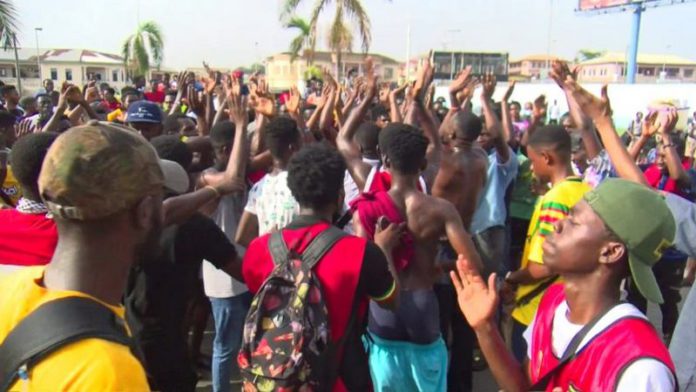In a concerning revelation, the Ghana Statistical Service (GSS) has released its monthly press release, shedding light on the education and employment status of young people in the country.
According to the Annual Household Income and Expenditure Survey 2022 Third Quarter Labour Statistics Report, approximately 1.5 million individuals between the ages of 15 and 24 in Ghana were not engaged in education, employment, or training (NEET) during the third quarter of 2022.
The figures reveal that one in every four young people in this age group, amounting to 24.2% of the population, remained disconnected from educational and vocational opportunities during the specified period.
The Greater Accra, Ashanti, Eastern, and Central regions accounted for over half of the youth NEET population, with Greater Accra leading with 312,394 individuals, followed closely by Ashanti with 300,161 individuals.
Additionally, in 13 out of the 16 regions, more than 20% of young people between 15 and 24 years were found to be not in education, employment, or training. The Eastern Region demonstrated the highest proportion of disengaged youth, with a figure approximately twice that of the Bono Region, which reported the lowest proportion at 14.5%.
The GSS also highlighted findings from the 2021 Population and Housing Census (PHC), which revealed that 11.1% of individuals aged 15 to 24 years, equivalent to 1.4 million young people, had never attended school. Among this age group, a slightly higher percentage of females (12.0%) had never attended school compared to males (10.2%).
The Savannah, North East, Northern, Upper West, and Oti regions recorded more than 20% of young people who had never attended school. These five regions accounted for nearly half (665,508) of the total number of young individuals who had never accessed formal education.
Furthermore, the census reported an unemployment rate of 32.8% among individuals aged 15 to 24 years, with females experiencing a higher rate of unemployment (36.7%) compared to males (29.3%). The unemployment rate for this age group exceeded 30% in 12 out of the 16 regions, with the Upper West Region leading at 39.0%, followed closely by Western North at 38.4%.
The release of this data coincided with World Youth Skills Day, celebrated annually on July 15, which aims to emphasize the significance of equipping young people with skills for employment, decent work, and entrepreneurship. The theme for this year, “skilling teachers, trainers, and youth for a transformative future,” highlights the importance of providing quality education and vocational training opportunities to empower young individuals in shaping their futures.

